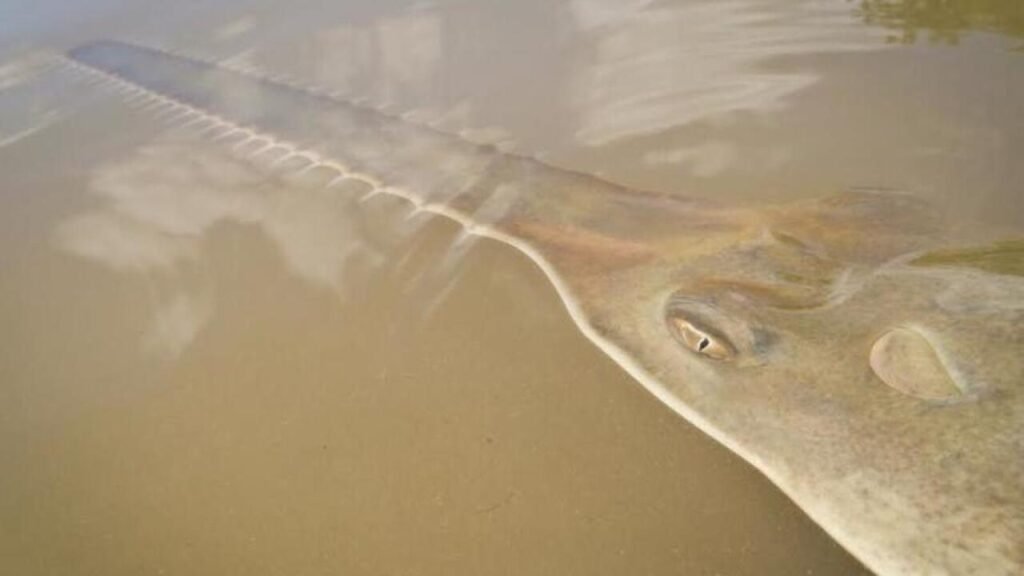Mysterious Spinning Deaths of Endangered Fish in Florida May Have a Cause

Researchers are zeroing in on a potential cause behind the alarming spinning behaviors and subsequent deaths of endangered smalltooth sawfish in the Florida Keys. These peculiar events, which have seen fish spinning uncontrollably before dying, first came to light last fall and have since prompted a thorough investigation by state and federal wildlife agencies.
A Disturbing Trend
Since the issue was first noted, nearly 500 related incidents have been reported to the Florida Fish and Wildlife Conservation Commission’s (FWC) fish kill hotline. While this phenomenon has affected dozens of fish species, scientists are particularly concerned about the critically endangered smalltooth sawfish. As of early May, 47 deaths of this species have been reported, though experts believe the true number might be higher due to limited monitoring capabilities.
Searching for Answers
Initial tests conducted by the FWC have ruled out common environmental factors such as red tide, oxygen levels, salinity, pH, and water temperature. Interestingly, the analysis of fish tissue and water samples revealed the presence of harmful algal species in some instances. Further research is necessary to determine whether these algae could be linked to the bizarre fish deaths.
Ongoing Efforts and Challenges
Amidst these investigations, conservation efforts continue. In a notable attempt to understand and mitigate these incidents, the Mote Marine Laboratory in Sarasota rescued a distressed sawfish from Cudjoe Bay in early April. Despite intensive care at their rehabilitation center, the sawfish did not survive. A necropsy is planned, which may shed light on the specific causes of death.
Conservation Significance
Sawfish, known for their distinctive tooth-lined snouts, are part of a group of shark-like rays found in tropical waters. Their numbers have dwindled dramatically, primarily due to habitat loss from coastal development and fatalities from fishing practices. This ongoing crisis underscores the urgent need for enhanced protective measures and public awareness to safeguard these unique creatures.
The Path Forward
The FWC emphasizes the importance of community involvement in reporting fish kill incidents. Such data are vital for advancing research and formulating strategies to protect vulnerable marine life. As scientists work to pinpoint the exact cause of these unusual deaths, cooperation between governmental bodies, research institutions, and the public will be crucial.




